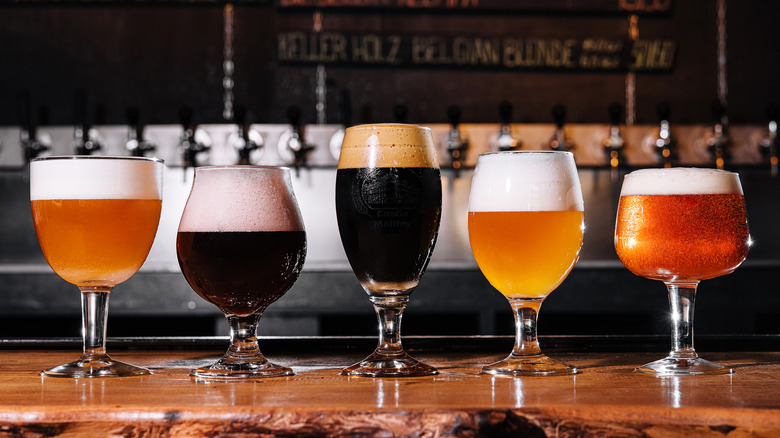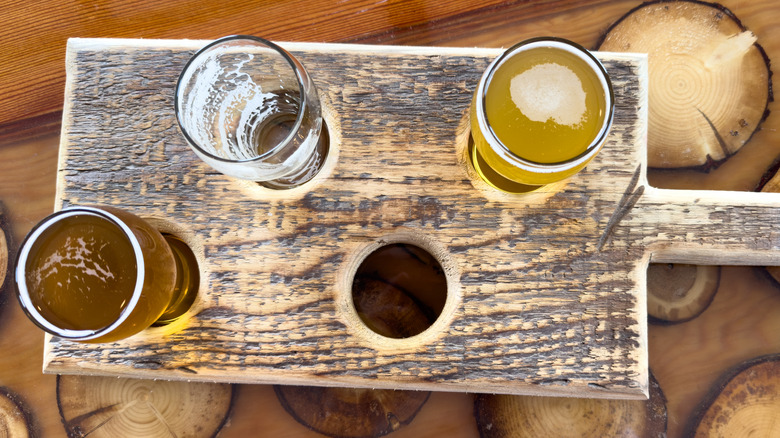What Sets A Farmhouse Ale Apart From Regular Beer?
Beer can be sorted into two major categories: ales and lagers. The key difference lies in how they're fermented. Ales use top-fermenting yeast at warmer temperatures, leading to more complex, fruity, and aromatic flavors, while lagers use bottom-fermenting yeast at colder temperatures, resulting in a cleaner, crisper taste. Farmhouse ales, though technically a subset of ales, are in a league of their own, so let's take a dive into the rustic start of beer's most funky category.
Traditionally brewed on European farms to quench the thirst of seasonal workers, farmhouse ales were anything but standardized. Farmers would use local ingredients and wild yeast strains, creating unique, rustic beers. These brews weren't made for consistency — they were made for survival and refreshment. For example, the farmhouse ale Saison was first brewed in 18th-century Belgium to keep workers hydrated without the fear of pathogens that were often found in drinking water. Unlike your typical ale, farmhouse ales often feature natural fermentation, giving them a tart, unique, and sometimes downright wild flavor profile. If your beer's taste suggests that it just rolled in from the barn, chances are it's a farmhouse ale.
What makes farmhouse ales stand out?
Farmhouse ales break all the rules — and that's exactly the point. While most ales are meticulously brewed for consistency, farmhouse ales embrace unpredictability. Their secret? Wild yeast and local bacteria often play a starring role. This natural fermentation process can create flavors ranging from pleasantly tart to complex, earthy, and altogether unique. Think of them as the free-spirited bohemians of the beer world.
Another hallmark of farmhouse ales is their diverse ingredient list. Depending on the region and season, brewers might incorporate herbs, spices, fruit, or even grains from the farm itself. This connection to local ingredients and traditional brewing methods is what gives farmhouse ales their distinct identity. Many of them, like former Beer of the Week Roadhouse Family Vacation Blonde Ale, lean into crisp, refreshing notes, while others boast the funky complexity that has beer lovers coming back for more.
Compared to other ales, farmhouse styles have a dry, effervescent quality that makes them perfect for pairing with food. Whether you're biting into a crusty loaf of beer bread or dipping into a creamy beer cheese dip, farmhouse ales complement rustic flavors beautifully and even enhance recipes that call for beer.
So, the next time you pour a farmhouse ale, savor its unpredictable flavor — it's a sip of history in every glass.

